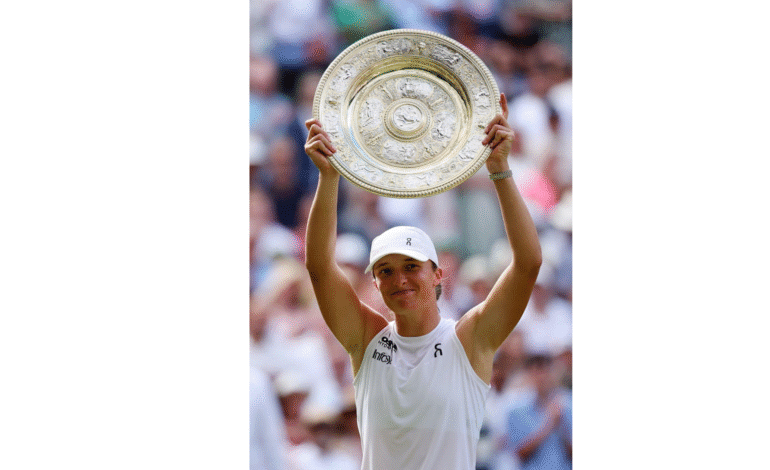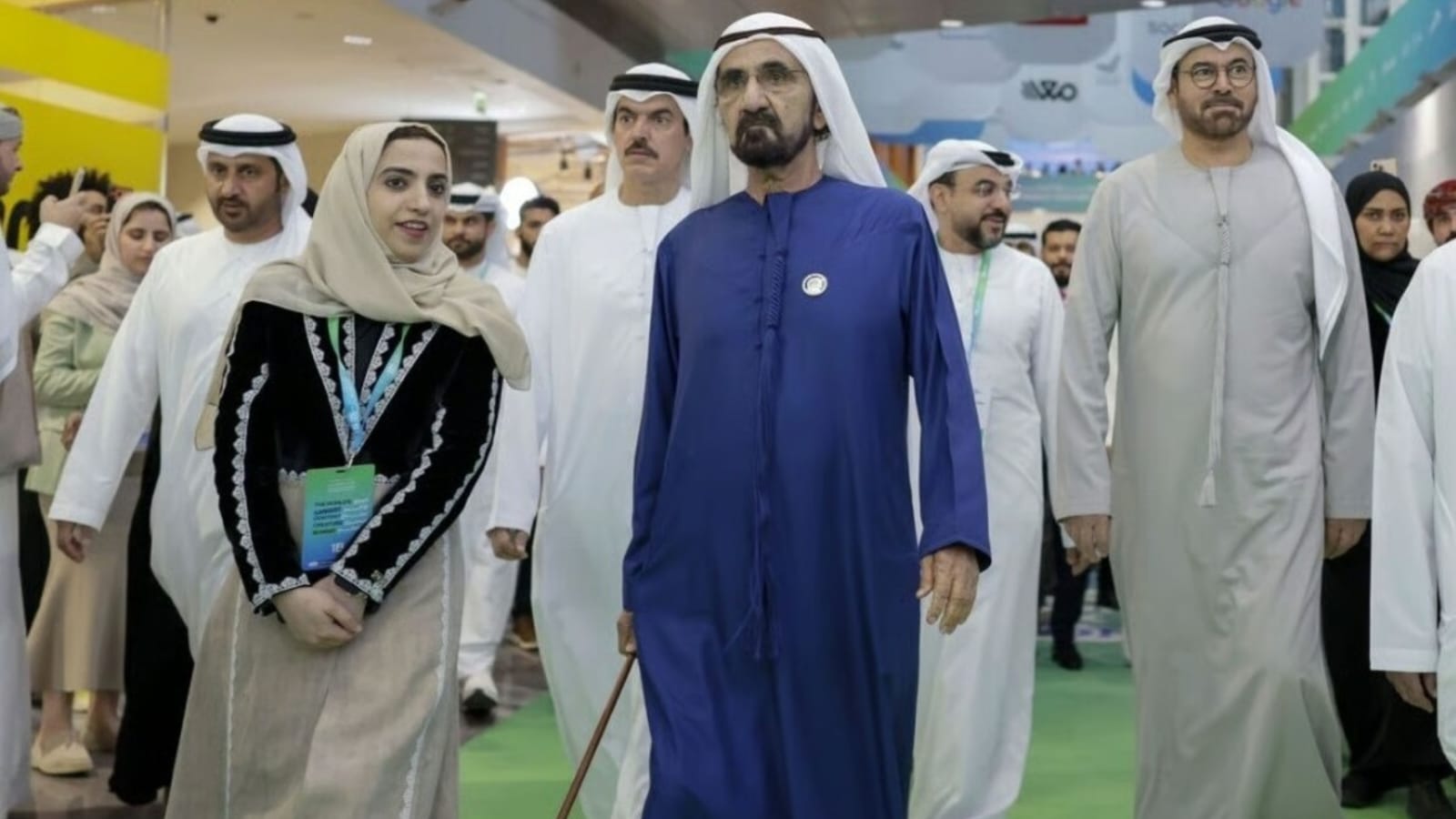Iga Swiatek Lifts Wimbledon Trophy for the First Time

In a breathtaking performance that defied expectations and rewritten narratives, Iga Swiatek has added Wimbledon 2025 to her collection of Grand Slam titles, triumphing on the manicured lawns of Centre Court with a ruthless dominance that stunned both critics and fans. Known as the undisputed queen of clay, the Polish star turned grass queen overnight, showcasing her ability to adapt, evolve, and dominate across all surfaces in the professional tennis arena.
Swiatek’s victory on Saturday marked her sixth Grand Slam title, but more notably, her first Wimbledon championship, sealing her status as one of the most versatile champions in modern tennis. Her career, once deeply rooted in Parisian clay triumphs, now sparkles with a grass-court crown a transition few believed was within reach just months ago.
Historic Victory: Swiatek Delivers a Masterclass on Grass
Against all odds, Iga Swiatek obliterated American 13th seed Amanda Anisimova in the final, finishing the match with an astonishing 6-0, 6-0 scoreline. The result was not only symbolic of her dominance but historic Swiatek became the first player in the Open Era to win a Wimbledon final without dropping a single game.
While her talent has never been in question, Swiatek’s grass-court resume was previously underwhelming. Despite winning the junior Wimbledon title in 2017, she had never advanced beyond the quarterfinals at the senior level before this year. That changed in dramatic fashion.
“I never dreamt it was going to be possible for me to play in the final,” Swiatek said after the victory. “I thought I experienced everything on the court, but I didn’t experience playing well on grass.”
Her emotions after lifting the Venus Rosewater Dish revealed not just triumph but relief, a sense of conquering both surface and self.
Bouncing Back from Setbacks: Swiatek’s Challenging Road to Wimbledon Glory
The journey to this landmark win wasn’t smooth. The 2025 season had been unusually turbulent for the usually consistent Swiatek. Despite her past dominance, she failed to reach any Grand Slam finals in the first half of the year, falling in the semifinals of both the Australian Open and French Open two tournaments where she had previously thrived.
Even more painfully, she lost in the semifinals of the 2024 Olympics in Paris, a defeat she later revealed left her in tears for “six hours.” That match became a turning point, revealing just how much pressure she carried as one of the sport’s leading stars.
Her misfortunes deepened when she tested positive for the banned substance trimetazidine in November 2024, leading to a one-month suspension. Fortunately, the International Tennis Integrity Agency (ITIA) accepted that it was due to contamination and did not extend the ban.
Coupled with her loss of the World No.1 ranking to Aryna Sabalenka and a change in coaching staff replacing Tomasz Wiktorowski with Wim Fissette Swiatek’s 2024–2025 period felt like a personal and professional reckoning.
Training Smart: Mallorca to Bad Homburg Her Grass-Court Foundation
Swiatek used the extra time afforded by an early French Open exit to meticulously prepare for grass season. She attended a training camp in Mallorca, allowing her to focus on movement, serve timing, and shorter rallies crucial skills for success on fast surfaces.
Her grass-court adaptation was further tested at the Bad Homburg Open in Germany, where she reached the final, only to lose to Jessica Pegula. But the tournament was far from a failure. In her own words, it “laid the foundations” for the Wimbledon campaign.
“I feel like I have developed as a player and I had time to practise a little bit more,” Swiatek said after her Wimbledon win. “I’m not going to have seasons where pressure is kind of forced on me from outside anymore.”
That mental switch choosing internal growth over external expectations was a decisive factor in how she approached Wimbledon.
Dominant Path to Wimbledon Final: A Performance for the Ages
Swiatek’s march to the title was one of the most dominant in recent memory. She dropped only one set throughout the entire tournament, gliding past formidable opponents with a mix of aggression and poise.
Her ability to adapt her powerful baseline game to the unpredictability of grass was impressive. She improved her serve placement, took the ball earlier, and used a lower center of gravity to control bounce variations factors that neutralized traditional grass-court threats.
Her Centre Court performance in the final was particularly memorable not just for the scoreline but for the surgical precision with which she dismantled Anisimova. Under the London sunshine, Swiatek controlled the court like a veteran of grass, not a convert.
Swiatek’s Legacy: Joining the Elite of Modern Women’s Tennis
With six Grand Slam titles to her name four French Opens, one US Open, and now Wimbledon Swiatek is inching toward legendary status. She’s now the only player under 25 with major titles on all three surfaces: clay, hard, and grass.
Her breakthrough win at the 2020 French Open made her the first Polish player to win a Grand Slam singles title. At just 19, she entered the spotlight by defeating Sofia Kenin, and she hasn’t looked back since.
Her versatility, mental toughness, and work ethic have positioned her as a torchbearer of modern tennis, much like Serena Williams and Ashleigh Barty before her.
Despite the media attention and expectations, Swiatek maintains a level-headed approach: “Every year it’s kind of the same, but I feel sometimes I can handle it better or ignore it,” she said.
Grass to Glory: How Wimbledon Changed Her Career Narrative
The Wimbledon title win changes everything. Until now, Swiatek had been labeled as a clay-court specialist, with doubts about her ability to adapt to faster surfaces. Wimbledon 2025 not only squashed that perception but showcased her as a complete player.
This victory could significantly affect future tournament dynamics. Rivals can no longer depend on Swiatek underperforming on grass, and tournament draws will be even more tense when her name appears.
Moreover, her success on grass opens doors for Middle Eastern fans and aspiring athletes to view tennis through a global lens. In regions like the UAE, Saudi Arabia, and Qatar, where tennis is rapidly gaining popularity, Swiatek’s diverse success resonates deeply.
Swiatek and the Middle East: Why Her Triumph Matters
Iga Swiatek’s journey is particularly inspiring for regions like the Middle East, where women’s sports are on the rise and international tournaments like the Dubai Duty Free Tennis Championships and the Abu Dhabi Open are gaining traction.
She has participated in past Middle Eastern events and has voiced support for inclusive sports development, making her a recognizable and respected figure among fans across the UAE.
Her ability to evolve her game is reflective of the rapid transformation in Middle Eastern sports culture, where investment, opportunity, and infrastructure are creating pathways for new talent to emerge particularly female athletes.
Looking Ahead: What’s Next for Swiatek?
With Wimbledon conquered, Swiatek will turn her attention to the upcoming US Open series and the WTA Finals, hoping to reclaim the world number one ranking and further cement her dominance across surfaces.
Analysts predict she could soon break into the double-digit Grand Slam club, an elite circle that includes names like Serena Williams, Steffi Graf, and Chris Evert.
However, Swiatek remains grounded. Her recent statements show maturity, resilience, and a keen focus on mental well-being traits that will serve her well as the physical and emotional demands of modern tennis increase.
Swiatek’s Wimbledon Win is a Legacy-Defining Triumph
Iga Swiatek’s Wimbledon 2025 victory is not just a milestone it’s a transformation. From clay-court queen to multi-surface Grand Slam champion, her evolution marks a new era in women’s tennis.
Her story full of challenges, setbacks, and strategic comebacks is a testament to the power of perseverance, smart planning, and emotional resilience. For young fans across Europe, the UAE, and beyond, she represents a blueprint for success in the modern age of sport.
As the grass settles and the world reflects on this historic Wimbledon, one thing is certain: Iga Swiatek isn’t done yet. She’s only just begun.








1 Comment
[…] Wimbledon victory is a milestone that transcends individual achievement. It signifies the arrival of a player who has […]
Comments are closed.